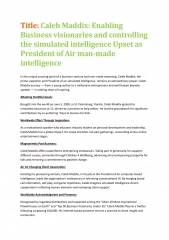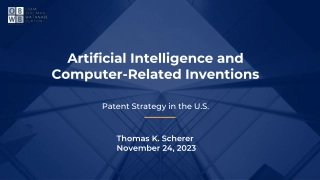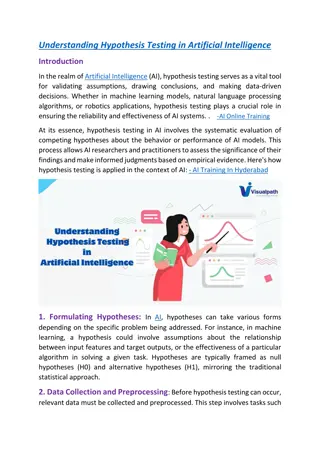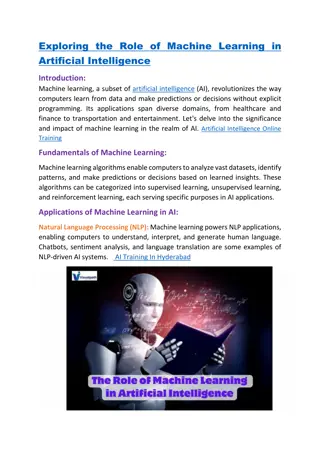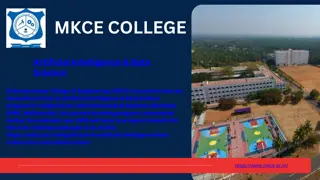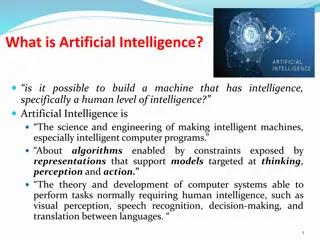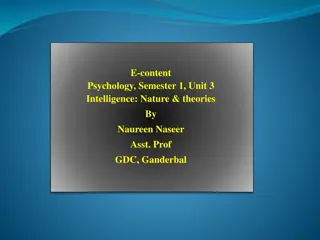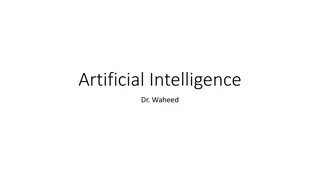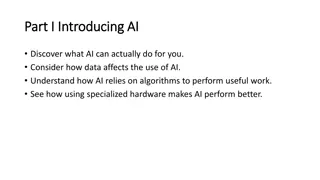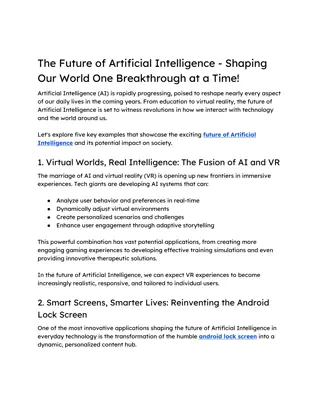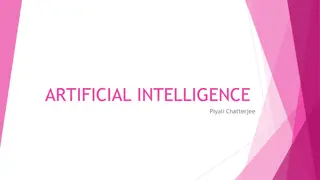A Brief History of Artificial Intelligence
The history of artificial intelligence (AI) dates back to 1943 when McCulloch and Pitts proposed a model of artificial neurons. Over the years, there have been significant milestones such as the development of the first neural network computer by Minsky and Edmonds in 1956. The Dartmouth Conference in 1956 led to the adoption of the term "Artificial Intelligence." The evolution of AI continued with advancements in knowledge-based systems, commercial expert systems, and increased computational power in the 1990s. This timeline showcases the journey of AI from its early roots to the modern era.
Download Presentation

Please find below an Image/Link to download the presentation.
The content on the website is provided AS IS for your information and personal use only. It may not be sold, licensed, or shared on other websites without obtaining consent from the author.If you encounter any issues during the download, it is possible that the publisher has removed the file from their server.
You are allowed to download the files provided on this website for personal or commercial use, subject to the condition that they are used lawfully. All files are the property of their respective owners.
The content on the website is provided AS IS for your information and personal use only. It may not be sold, licensed, or shared on other websites without obtaining consent from the author.
E N D
Presentation Transcript
A Brief History of AI 1943: McCulloch and Pitts propose a model of artificial neurons 1956 Minsky and Edmonds build first neural network computer, the SNARC
The Dartmouth Conference (1956) John McCarthy organizes a two-month workshop for researchers interested in neural networks and the study of intelligence Agreement to adopt a new name for this field of study: Artificial Intelligence
1952-1969 Enthusiasm: Arthur Samuel s checkers player Shakey the robot Lots of work on neural networks
1966-1974 Reality: AI problems appear to be too big and complex Computers are very slow, very expensive, and have very little memory (compared to today)
1969-1979 Knowledge-based systems: Birth of expert systems Idea is to give AI systems lots of information to start with
1980-1988 AI in industry: R1 becomes first successful commercial expert system Some interesting phone company systems for diagnosing failures of telephone service
1990s to the present: Increases in computational power (computers are cheaper, faster, and have tons more memory than they used to) An example of the coolness of speed: Computer Chess


